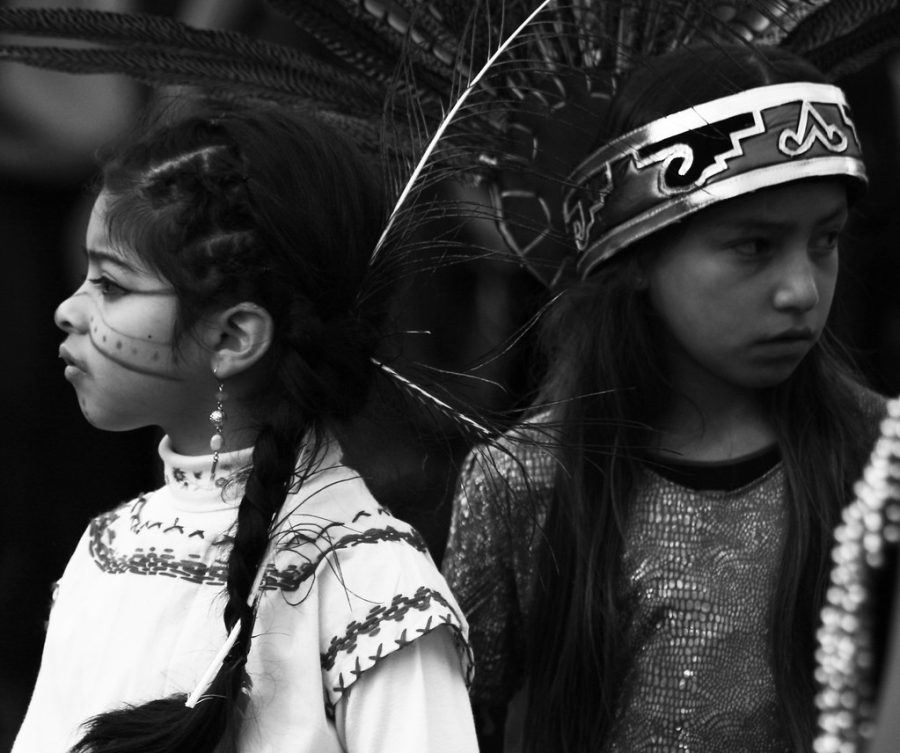The Indian Child Welfare Act must remain intact
December 3, 2022
Native Americans will be subjected to a form of contemporary genocide if the Supreme Court rules the Indian Child Welfare Act as unconstitutional.
The ICWA supports the establishment of federal guidelines to oversee state proceedings concerning the adoption of a Native American child to ensure they are being placed in homes which reflect the values of their culture.
The Supreme Court is currently taking up a challenge to the law through Haaland v. Brackeen, a case which originated in Texas. The Supreme Court heard oral arguments challenging the act’s legality on Nov. 9. A final verdict is expected to be given in spring 2023.
If the Supreme Court votes to strike down the legislation, 44 years of progress will be lost. The judgment would compromise Native Americans’ sovereignty.
A native foster child should be placed with extended family members, in a native foster home or in a non-native household that upholds native cultural values and customs, as mandated by ICWA.
A tribe has the legal power to evaluate actions regarding their citizens. Such authority enables tribes to preserve their sovereignty since subsequent generations are raised in or near their culture.
Prior to the enactment of ICWA, approximately 80% of Native American homes on reservations had at least one child in foster care.
Native children were routinely removed from their families and tribes by adoption agencies and placed in non-Native homes where they would be denied access to cultural customs.
The National Indian Child Welfare Association’s research indicates even when qualified family members were prepared to foster them, 85% of Native American children removed from their homes ended up outside of their communities.
Furthermore, children were removed from their families and tribes without specific evidence of abuse or neglect. In response, advocates developed legislation to counteract this, and were successful in 1978 when ICWA was passed.
Overturning ICWA would be an intentional weakening of Native American sovereignty by cutting off children and subsequent generations from their culture. Consequently, tribal governments will gradually lose their citizens.
Native Americans are not just a racial category, but a political classification under the U.S. Constitution. As independent governments, they should have the right to protect their citizens.
Albert Bender, a Cherokee journalist, argued the United Nations’ definition of genocide is applicable to Haaland v. Brackeen. A section under Article II of the U.N.’s Convention on the Prevention and Punishment of the Crime of Genocide classifies “forcibly transferring children of the group to another group” as a means of committing a genocide.
During the Haaland v. Brackeen case, the counsel in favor of the law’s unconstitutionality were unfamiliar with the application of ICWA. Throughout the hearing, they resorted to delving into unusual hypotheticals.
Advocates in favor of ICWA interviewed by Tribal Business News noted how the lack of Native voices within the courtroom resulted in questions regarding the procedures in ICWA cases remaining unanswered or insufficiently addressed.
Rachel Felix, a citizen of the Navajo nation and attorney, commented that if no Native foster homes or families are available to accept a child, a non-Native can foster or adopt them.
Contrary to the arguments advanced by the law’s opponents, ICWA does not prohibit non-Native families from fostering and adopting Native children. Therefore, it is not a racial issue. Rather, ICWA prioritizes a Native’s child placement in households that preserve and respect Native American cultures.
The Supreme Court should not rule on the matter unless Native Americans have qualified representation. A thorough portrayal of Native American experiences with ICWA can help courts make well-informed decisions that take their experience into account.
It is important for Native American children to grow up in an environment that accepts them as they are and makes them feel like their identities are valuable.
According to a recent Child Trends report, Native American children are overrepresented in the foster care system. While American Indian or Alaska Natives account for just 12% of children in South Dakota, they make up 53% of those in foster care in the state.







Ruth • Dec 3, 2022 at 11:45 pm
Definitely a great read on such an important topic, would love to see a follow up of this after the verdict!